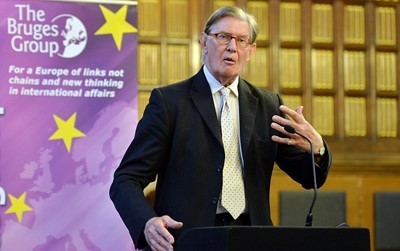Bruges Group Blog
Britain Should Welcome Refugees, Not Migrants From France
It is a quintessential British bonding experience to enjoy a joke at the expense of the French. In many ways, it has become an entrenched part of our national identity. However, even the truly gallophobic among us couldn't possibly believe that those who leave France for the United Kingdom should be classed as refugees.
Refugees are displaced peoples, forced to cross national boundaries in search of safety and unable to return to their country of nationality as a result of some life-threatening turmoil. While the vast majority who have made the dangerous crossing do originate from countries like Yemen, Eritrea, Chad, Egypt, Sudan and Iraq, they cannot be classed as refugees unless the United Kingdom is their first point of safety. At present, most arrivals have come to the UK via France. We are their final destination of choice, not necessity.
President Macron has long argued France cannot accommodate any more refugees and there is a clever loophole he now appears to be exploiting in order to ensure their care falls under Britain's remit. The EU's Dublin III Regulation states that the country through which an asylum-seeker first entered the EU is responsible for processing their asylum claim. However, an exception to the established chain of responsibility can be made if a refugee has lived in an EU member state that is not their initial point of entry for at least 5 consecutive months. This is known as a period of "tolerated illegal presence".
It would be foolish not to question whether France is deliberately allowing migrants to slip through the net, with the hope that a lawful transfer of responsibility will occur given time on British soil. Protestors do seem to be helping France in this regard. Just days ago, a deportation flight was grounded having been bogged down in legal quagmire by campaigners. A Home Office Spokesperson confirmed that this could "effectively result in the timing out of a return due to stringent Dublin Regulations" while claims filed are given full legal consideration.
Chair of the Defence Select Committee, Tobias Ellwood MP, has admitted the French currently prevent just 1 in 5 Channel crossings. In "normal circumstances" the French only ever prevented around 50 per cent of Channel crossings anyway. It does seem Priti Patel's accusations of half-hearted efforts on the French side aren't entirely unfounded.
Though anti-deportation activists have claimed making the process of claiming asylum munificent would reduce the number of illegal crossings, Deputy Mayor of Calais, Phillippe Mignonet, has consistently blamed British generosity. He points to the immediate entitlement to benefits, healthcare, housing and the possibility of work soon after arrival as the pull factors making the UK worth the dangerous journey. Regrettably he isn't entirely wrong. Consequently, Britain has also managed to attract great numbers of economic migrants, who have no real claim for refuge, but rather seek to settle here because the standard of living is perceived to be better than that available in their home country.
In addition, Britain's historically lacklustre approach to illegal crossings has allowed, and even incentivised, organised crime gangs to create an entire industry in smuggling people from Asia and Africa across Europe. Many will remember the harrowing lorry deaths that made the headlines last year. Migrants who knowingly pay smugglers and victims of human trafficking alike have had their lives jeopardised because of pitfalls within our own legal system. We cannot stop these tragedies occurring unless we change legislation and, ultimately, we cannot change legislation until we have the political will to do so.
More than 4,300 people are thought to have made the journey from France since the start of the year, putting an impossible strain on community resources. Many local authorities are fast approaching capacity due to the onslaught of arrivals. Though this is not just an issue of fiscal responsibility. To exceed set council limits would jeopardise the safety of the very people in their care.
This country has a moral responsibility to offer asylum to those in need, but we are not and should not be obligated to house illegal migrants - who could have otherwise settled in France - at the expense of the British taxpayer. These illegal Channel crossings are symptomatic of EU failure to regulate the free movement of peoples. As Brexit negotiations continue, this government must secure an agreement that ensures there will be a new legal mechanism for Britain to return asylum seekers to their first safe point of entry into Europe.
A five-month expiration date on justice is unacceptable.
Contact us
246 Linen Hall, 162-168 Regent Street
London W1B 5TB
Director : Robert Oulds MA, FRSA
Founder Chairman : Lord Harris of High Cross






